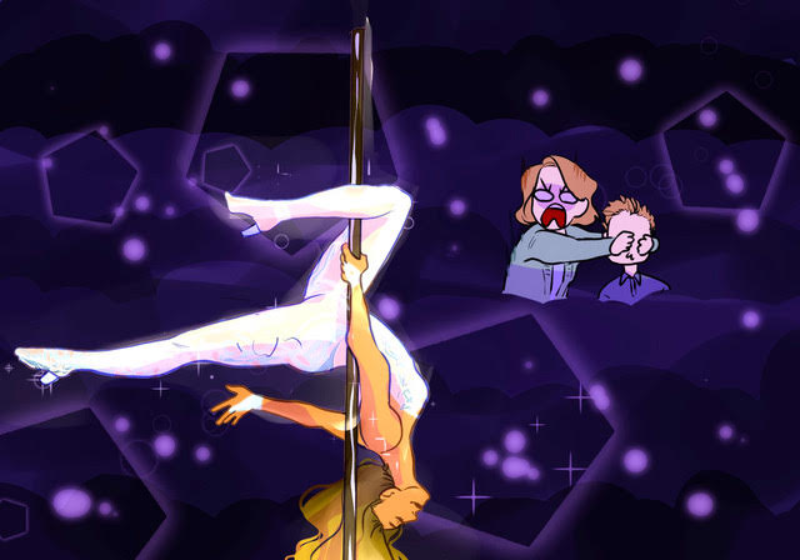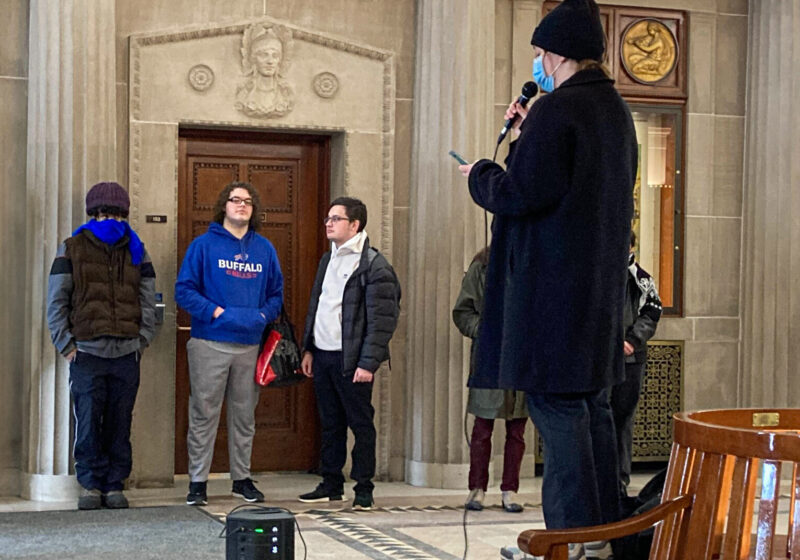During the Super Bowl LIV halftime show, Latina pop stars Shakira and Jennifer Lopez sang alongside children in cages while dancing like they were in a high-end strip club. Some viewed the performance as a powerful anti-Trump protest, others saw it as the corruption of our children and the ruin of a culture.
Although I’m not a huge fan of football, I tuned in for the halftime show. All I saw was a whole lot of leg, butt, midriff, and boob. Shakira, whose infamous hips were draped with cherry blossom pompoms, twerked, jiggled, and danced away. The Colombian goddess sang a medley of her top hits, like “Whenever, Wherever,” “Hips Don’t Lie,” “Waka Waka,” and others, while remaining in constant motion: whipping her long blond hair, stomping around the stage with a jubilant sequence of salsa steps, African dance, undulating pelvic gyrations, and even a rope dance. Next up was J.Lo, dressed like a mermaid, boobs and butt very apparent, who slid down a pole with legs wide open only to later end up on a man’s crotch.
Now, many may disagree with me, but this objectification of women is corrupting the youth.
Of course, for superhumanly attractive and famous women like Shakira and J.Lo, there is nothing to lose from flaunting their sexuality in front of the nation, and there’s money and admiration to be gained.
However, for people with less clout, there are clear detriments. Mainstreaming this raunchy culture has led teenage girls to take to social media outlets, posting photos of themselves on Snapchat and Instagram in swimsuits or tight dresses, full of provocative poses. From a young age, there is pressure to deliver a hit of dopamine to yourself from the 500 or maybe 1,000 likes an image can get.
How is resurrecting every stereotype of female sexuality that feminism endeavored to banish good for women? This performance may claim to be a form of activism and a statement against Trump, but isn’t it ironic that we are presenting women as porn stars to a president who has been known to have a penchant for porn stars?
I don’t want to dismiss the parts of this performance that were a genuinely impressive display. For instance, overt political messages were strong throughout the performance. Children sat in illuminated cages as a choir of young girls, wearing American flags emblazoned on their chests, shouted, “Let’s get loud.” In addition, J.Lo’s daughter, Emme Maribel Muñiz, sang lyrics from Bruce Springsteen’s “Born in the U.S.A.”
It was a display that said people of Latin American descent have the complete right to belong in the United States, and it was a protest against restrictive immigration policies at the Mexico-U.S. border.
There may have been an underlying message to this performance that definitely had merit, but why not present these pop stars and beliefs in a more modest way? We should reconsider and redefine how we want our youth and country’s image to appear.
Football is essential to American culture, but let’s transform the halftime performance to entertainment that doesn’t promote sex, tight clothing, and pornography.
Let’s laugh, sing, and enjoy spending time with our families without having to witness immodest appearances. Female empowerment doesn’t need to mean wearing little to no clothing — it’s much bigger than that. Our sporting events need to revolutionize and channel entertainment in a more viewer-friendly manner.





